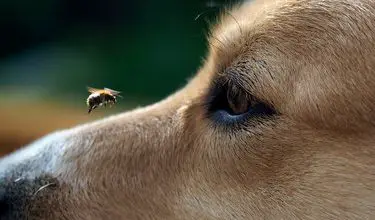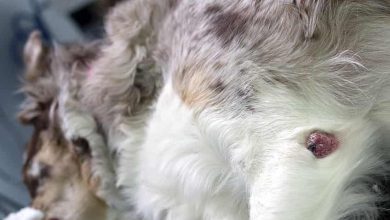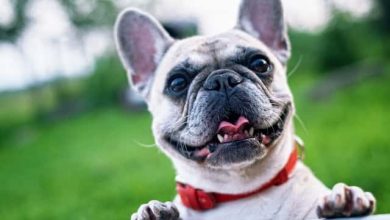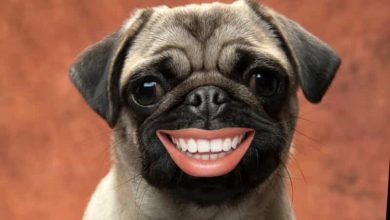Short-Haired German Shepherd vs Long Hair
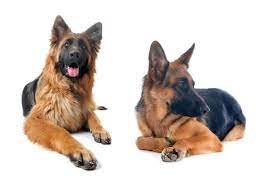

German Shepherds are known for their intelligence, loyalty, and versatility, making them one of the most popular dog breeds worldwide. When it comes to choosing a German Shepherd, one of the decisions you may encounter is whether to opt for a short-haired or a long-haired variety. Both varieties have their own unique characteristics, appearance, and care requirements. In this article, we will explore the differences between short-haired and long-haired German Shepherds to help you make an informed decision.
Characteristics of Short-Haired German Shepherds
Appearance of Short-Haired German Shepherds
Short-haired German Shepherds, also known as stock coat or plush coat German Shepherds, have a dense, straight coat that lies close to their body. Their coat is usually short to medium in length, providing a sleek and elegant appearance. The short hair showcases the breed’s muscular physique and strong presence.
Grooming Needs of Short-Haired German Shepherds
One of the advantages of owning a short-haired German Shepherd is their lower grooming needs compared to their long-haired counterparts. Their short coat requires minimal brushing to maintain its shine and cleanliness. Occasional brushing is sufficient to remove loose hair and keep their coat in good condition.
Shedding of Short-Haired German Shepherds
Short-haired German Shepherds are moderate shedders. They typically shed their coat twice a year, known as “blowing their coat,” when they shed their winter fur to make way for a lighter coat for the warmer months. During shedding seasons, more frequent brushing may be required to minimize loose hair around the house.
Characteristics of Long-Haired German Shepherds
Appearance Long-Haired German Shepherds
Long-haired German Shepherds, also referred to as long coat German Shepherds, have a luxurious, flowing coat that can reach significant lengths. Their hair is longer around their ears, neck, tail, and back of their legs, giving them a majestic and elegant appearance.
Grooming Needs of Long-Haired German Shepherds
Compared to short-haired German Shepherds, long-haired ones require more grooming attention. Their long coat is prone to tangling and matting, so regular brushing is essential to prevent such issues. Long-haired German Shepherds may need brushing multiple times a week to keep their coat free from tangles and maintain their overall health.
Shedding of Long-Haired German Shepherds
Long-haired German Shepherds are also moderate shedders, but their longer hair tends to be more visible around the house. Regular brushing helps in managing shedding, as it removes loose hair and prevents it from accumulating on furniture and floors.
See also: German Shepherd Golden Retriever Mix New Facts
Temperament and Personality Short-Haired German Shepherd vs Long Hair
Both short-haired and long-haired German Shepherds share similar temperaments and personalities. They are intelligent, loyal, protective, and make excellent family companions. German Shepherds, regardless of their coat length, are known for their versatility and are often used as working dogs in various fields, including search and rescue, police, and military.
Short-Haired German Shepherds
Short-haired German Shepherds are renowned for their athleticism and energy. They thrive on physical activities and require regular exercise to stay mentally and physically stimulated. Their shorter coat makes them more adaptable to different weather conditions, and they are generally more tolerant of warm climates.
Long-Haired German Shepherds
Long-haired German Shepherds possess the same temperament as their short-haired counterparts. However, their longer coat may require more care during hot weather to ensure they don’t overheat. They may benefit from access to shaded areas and sufficient hydration to remain comfortable.
Exercise and Training Requirements Short-Haired German Shepherd vs Long Hair
Short-Haired German Shepherds
Short-haired German Shepherds are highly active dogs that require ample exercise and mental stimulation. Regular physical activities, such as daily walks, jogging, or engaging in interactive play sessions, are crucial for their overall well-being. They excel in obedience training and various dog sports due to their intelligence and eagerness to please.
Long-Haired German Shepherds
Similar to short-haired German Shepherds, long-haired ones also have high exercise requirements. They need opportunities for regular exercise to expend their energy and maintain a healthy weight. Additionally, mental stimulation through training sessions and interactive play is essential to prevent boredom and ensure they remain well-behaved companions.
Health Concerns about Short-Haired German Shepherd vs Long Hair
Short-Haired German Shepherds
Short-haired German Shepherds are generally healthy dogs with a few breed-specific health concerns. Some of the conditions that can occur in German Shepherds, regardless of their coat length, include hip and elbow dysplasia, degenerative myelopathy, and digestive issues. Regular veterinary check-ups, a balanced diet, and appropriate exercise can help mitigate potential health issues.
Long-Haired German Shepherds
Long-haired German Shepherds are also prone to similar health concerns as short-haired ones. However, their longer coat requires extra attention to ensure proper hygiene and minimize the risk of skin infections. Regular grooming and keeping their coat clean and dry are crucial to maintaining their overall health.
Choosing the Right German Shepherd for You
When deciding between a short-haired and long-haired German Shepherd, several factors should be considered.
Considerations
- Lifestyle: Assess your activity level, available time for exercise and grooming, and whether you have children or other pets.
- Preferences: Determine which coat length appeals to you aesthetically and fits your lifestyle requirements.
- Climate: Consider your local climate and whether a longer or shorter coat is more suitable.
See also: Border collies Vs German Shepherds: Which is best?
Conclusion
In conclusion, choosing between a short-haired and long-haired German Shepherd depends on your personal preferences, lifestyle, and climate. Both varieties possess the remarkable traits and qualities that make German Shepherds beloved worldwide. Short-haired German Shepherds offer easier grooming and adaptability to warmer climates, while long-haired German Shepherds boast a majestic appearance that requires more grooming attention. By considering these factors, you can make an informed decision and find the perfect German Shepherd companion for you.
FAQs about Short-Haired German Shepherd vs Long Hair
Here are the most FAQs on Short-Haired German Shepherd vs Long Hair:
Are short-haired German Shepherds more suitable for warm climates?
Short-haired German Shepherds are generally more tolerant of warmer climates due to their shorter coat, which helps them regulate body temperature more efficiently.
Do long-haired German Shepherds require more grooming?
Yes, long-haired German Shepherds require more grooming compared to their short-haired counterparts. Their longer coat is prone to tangling and matting and needs regular brushing to maintain its health and appearance.
Are short-haired German Shepherds easier to train?
Both short-haired and long-haired German Shepherds are highly intelligent and trainable. However, each dog’s individual personality and temperament play a significant role in training success.
Do long-haired German Shepherds shed more than short-haired ones?
Both varieties are moderate shedders, but the longer hair of the long-haired German Shepherds may make their shedding more visible.
Can I have both short-haired and long-haired German Shepherds in the same household?
Yes, it is possible to have both short-haired and long-haired German Shepherds in the same household. Proper introductions, socialization, and individual attention are key to ensuring a harmonious coexistence between the two dogs.

